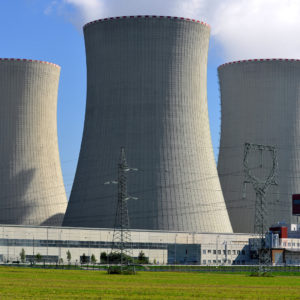They are bureaucracy’s equivalent of ghosts: old policies, fiats and ideas that have lost their relevance — if they ever had any — and are without a constituency, but they live on.
Take the Overseas Private Investment Corporation (OPIC), a little-known, self-sustaining agency of the government, which was set up in 1971 to help American businesses invest in emerging markets. It helps with risks that are outside the purview of the Export Import Bank and facilitates the attraction of private capital to do the heavy lifting. It is considered a success and an important tool in foreign policy, so much so that in October, it will be subsumed into a new agency, the U.S. International Development Finance Corporation, to work in conjunction with the U.S. Agency for International Development.
OIPC’s website says clearly that it helps U.S. manufacturers gain a foothold in new markets. It does not list exclusions from its consideration.
But it has priorities and blind spots, often inherited from the attitudes of a previous administration. A case in point is that it will not lend to help countries buy nuclear power or nuclear power equipment.
The nuclear industry, which is exercised about this impediment to sales in new markets, believes that the agency’s policies of opposing such assistance lie in ambivalence toward nuclear in parts of the Obama administration.
Normally, this would be of little consequence because OPIC cannot afford to finance a whole new nuclear power plant of the traditional type, running to billions of dollars. Its lending limits are in the hundreds of millions, but it does provide risk mitigation that enables other financing to proceed.
This is especially important because the nuclear power industry is in the throes of reinvention: Small modular reactors are the new reality. These have many designs and varied support, including the traveling wave reactor from TerraPower, a Bill Gates-funded company, and the first of these new small reactors, the NuScale, is soon to be deployed at the Idaho National Engineering Laboratory. It will sell power to a consortium of local public utilities.
The stakes are not small. Fifty companies are working on new nuclear designs, most of them small modular reactors that can be built in a factory and shipped to their deployment sites for assembly. All of them will feature designs that obviate the possibility of catastrophic accidents and will seek to minimize nuclear waste.
In short, the new reactors are aimed at the very markets that OPIC is interested in. Its mission, especially when it morphs into U.S. International Development Finance Corporation this fall, will be to counter aggressive Chinese marketing under its ubiquitous Belt and Road initiative, which seeks to vacuum up markets in Asia and Europe.
David Blee, the dynamic president of the U.S. Nuclear Industry Council, has met with OPIC officials. Blee, along with nuclear industry executives, has also had a meeting with President Trump, where the issue was raised. Trump turned to his top economic adviser Larry Kudlow and asked him to investigate. So far, OPIC has not softened its anti-nuclear stance.
Lawyers who deal in international nuclear trade tell me the damage from OPIC’s ban on taking on nuclear projects is twofold: First, specific projects are likely to go to foreign competition, and second is the fact that a major U.S. agency will not even entertain assisting in financing such projects suggests a lack of confidence in American nuclear products by the government itself.
Defense contractors have always found it is impossible to sell defense hardware abroad if that same equipment is not deployed by the Pentagon. The buyer psychology is not hard to fathom: If it is not good enough for the United States, we do not want to know about it.
Critics of the agency cannot say that it is wholly out of touch with today’s reality: It is helping to finance Ivanka Trump’s projects for women around the world. Maybe America’s nuclear entrepreneurs should look to pitching their magical new machines to the first daughter. After all, the nuclear industry is employing more and more women.

